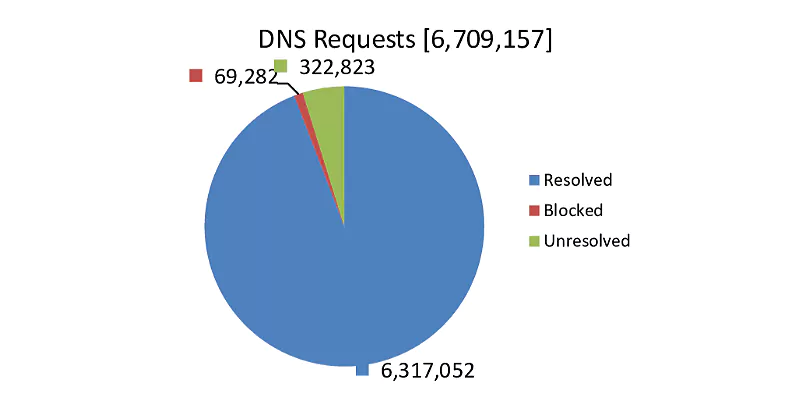A robust and secure DNS (Domain Name System) is the backbone of the internet. It’s the technology that translates human-readable domain names into IP addresses, ensuring that we can access websites and online resources seamlessly.
Ensuring the reliability, security, and performance of your DNS is paramount, and this is where port monitoring tools step in.
What is DNS?

Domain Name System (DNS) is basically the phonebook of the internet.
Through Internet Protocol (IP) addresses, web browsers may communicate. In order for browsers to load Internet resources, DNS converts domain names to IP addresses.
Every Internet-connected device has an IP address that is specific to it and that other computers can use to locate it. IP addresses no longer need to be remembered by humans thanks to DNS servers.
Importance of DNS
Before we dive into the world of port monitoring tools, it’s crucial to understand the significance of DNS.
Imagine a world without DNS – accessing websites, sending emails, or streaming content would be impossible without memorizing complex IP addresses. DNS plays a pivotal role in ensuring a smooth and user-friendly internet experience. It’s the bridge between human-friendly domain names and machine-readable IP addresses.
Here is a graphical representation of what DNS requests typically look like

What is Port Monitoring?
The goal of port monitoring is to keep an eye on a port’s general health and status within a network to spot obstructions, avert malfunctions, inventory related devices and ports, and get timely notifications of any changes. It is a subset of the broader network monitoring.
Even repetitive, port monitoring is occasionally referred to as network port monitoring.
Benefits of Port Monitoring for DNS
The role of Port monitoring tools cannot be overstated. They are essential for maintaining a healthy DNS infrastructure. A 2023 study indicates that port monitoring tools can be used to detect a wide range of DNS attacks.
They offer a range of benefits that contribute to the reliability and performance of your DNS system:
Real-time Monitoring
Port monitoring tools provide real-time insights into the status and performance of your DNS servers. This allows administrators to identify and address issues promptly, minimizing downtime and ensuring uninterrupted service.
Traffic Analysis
These tools enable you to analyze DNS traffic, identifying unusual patterns or spikes that may indicate malicious activity, such as DDoS attacks or unauthorized access attempts.
Proactive Issue Resolution
By constantly monitoring your DNS infrastructure, port monitoring tools help administrators proactively resolve issues before they impact users. This is essential for maintaining a seamless online experience.
Load Balancing
Port monitoring tools can help in distributing traffic efficiently across multiple DNS servers, optimizing performance and ensuring high availability.
Improved Security
Identifying and mitigating potential security threats is a primary advantage of port monitoring tools, enhancing overall DNS security. After all, the latest reports on cyber security suggest that the average cost of a data breach worldwide has been $4.45 million in 2023, a 15% rise in only three years.
The Role of Port Monitoring
Port monitoring tools play a vital role in DNS management. They continually scan, track, and report on the state of ports and services used in DNS operation. Port monitoring helps ensure that DNS servers are accessible, responsive, and secure. By monitoring ports and services, administrators can quickly detect issues and take necessary action to prevent service disruptions.
DNS Security and Port Monitoring
DNS security is a major concern in today’s digital world. Malicious actors target DNS infrastructure for various reasons, such as DNS cache poisoning, DDoS attacks, or DNS hijacking. Port monitoring tools are a critical component of DNS security as they:
Detect Anomalies
They can identify unusual port activities that may signal a security breach.
Block Unauthorized Access
Port monitoring tools can automatically block or mitigate suspicious port activity, reducing the risk of unauthorized access.
Enhance Redundancy
By monitoring the status of DNS servers and their ports, these tools can facilitate rapid failover to redundant servers in case of an attack or failure.
Keep Your DNS in Place With Awakish Port Monitoring Solutions
Awakish caters to port monitoring solutions designed to keep your DNS infrastructure secure and reliable. Their advanced tools offer real-time monitoring, reporting, and alerting capabilities, enabling you to maintain optimal DNS performance while safeguarding against security threats.
Awakish’s port monitoring solutions not only ensure the availability of your DNS servers but also empower you to address issues swiftly and maintain the integrity of your DNS infrastructure. Their robust security features help protect against DNS-related threats and vulnerabilities, securing your online presence.
Get in touch with us to experience advanced port monitoring made easy!



